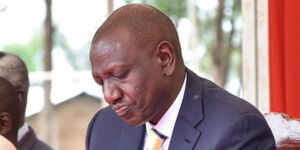Kenyans who were sent to Israel to study dryland farming technologies and automated agriculture have warned President Uhuru Kenyatta that the collapsed Galana-Kulalu may have been sabotaged by cartels.
The graduates who were drawn from various public universities and colleges have also petitioned the government to revive the project.
They stated that the food security venture would have provided employment for them as well as many other unemployed young people.
Vision 2030 Youth Entrepreneur Association Chairman, Edward Githaiga, accused the government of abandoning them despite being sent to Israel to acquire skills.
“This flagship project that was undertaken by the government with support from Israel was meant to boost food security in the country. But some ruthless cartels keen to sustain their business in maize milling and importation are working to shoot down the project,” Githaiga regretted.
In 2016, President Kenyatta had stated that the knowledge learnt by the students would be used to revolutionise agriculture in Kenya starting with the Galana-Kulalu Irrigation Scheme where the students would first apply their skills.
“A desert can truly be a paradise if we are committed. This place is drier than any part of Kenya but look at what they produce,” noted Uhuru during a tour of farms in Israel.
According to investigations by Daily Nation, the construction of Galana-Kulalu stalled due to sour relations between the contractor, Green Arava, the National Irrigation Board (NIB), the implementing agency for the project, and the Ministry of Water and Irrigation.
Initially, the project was to run for 30 months, with March 9, 2017, set as the completion date. However, Green Arava requested an extension to January 2018 after failing to meet the deadline but again failed to deliver.
In September 2018, the firm asked for another extension to finalise by April 2019. On January 17, Noam Ftecha, a project manager at Green Arava, wrote to NIB complaining that the agency was solely to blame for the incomplete project.












